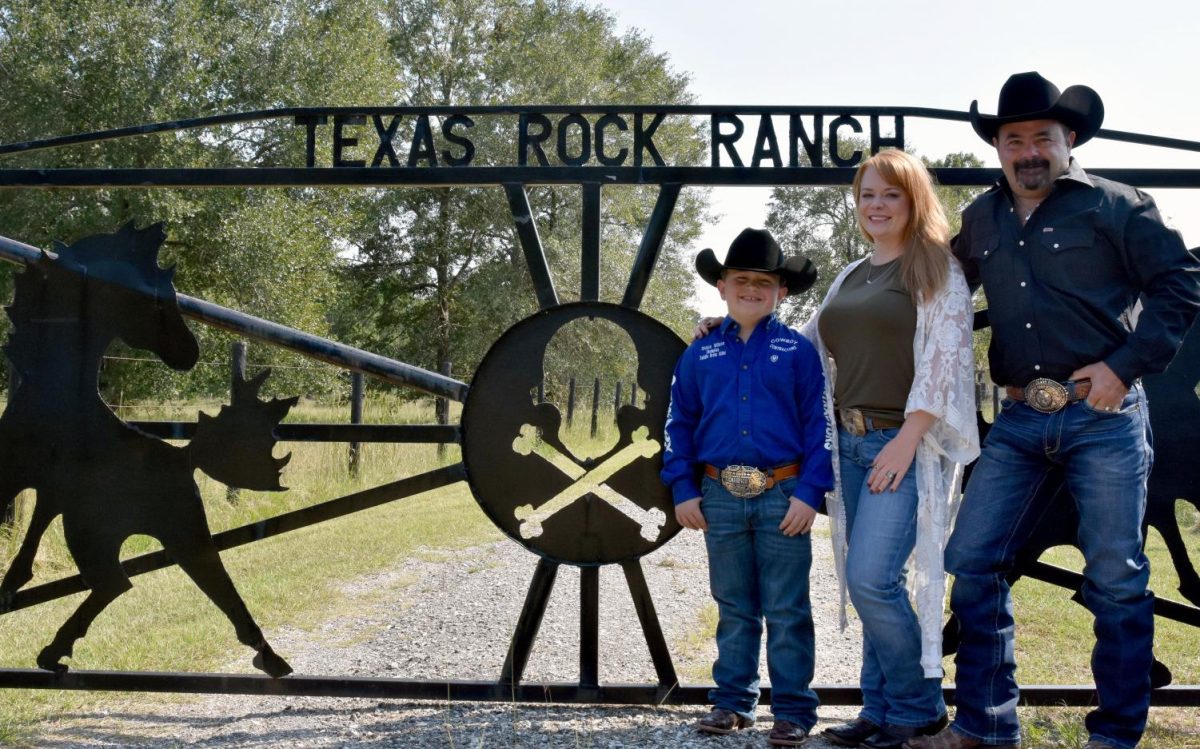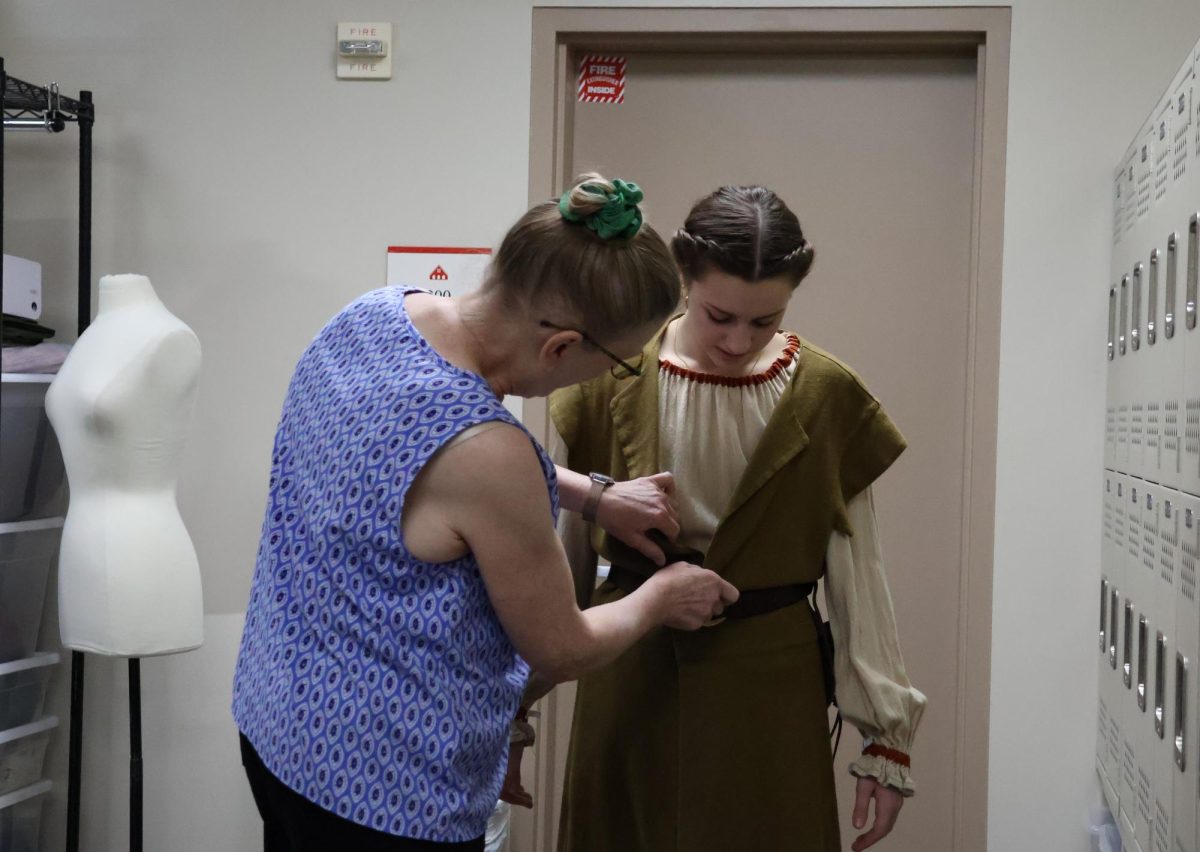From patchwork britches to lunar moth jackets, Middle and Upper School costume designer Teresa Fogler has created her fair share of unusual outfits. Yet when Fogler began preparing for last winter’s musical, “Something Rotten!”, she did not expect dancing eggs to become the focus of her job.
This year, Fogler and fellow designer Eric Alan have new challenges to face. With “Sherwood: The Adventures of Robin Hood” right around the corner, costume design is crucial for upcoming dress rehearsals and performances. Yet Fogler and Alan have struggled sourcing their materials. The recent closure of costume rentals and retail fabric stores like High Fashion Fabrics, a cornerstone in Houston textiles, has made it difficult for them to purchase the fabric needed to create costumes.
“I have a dress for the play that’s a little bit too short, and I really need some more of the fabric to make it three inches longer,” Fogler said. “And I thought, man, if High Fashion were still open, they’d have it.”
Other quilt stores and costume rentals lack the variety in sizing or quality of fabric for period-specific productions like “Sherwood,” whose medieval theme demands canvas-weight cottons, linen and wool. Traveling to Dallas or Atlanta for a better selection is not financially viable or time-efficient.
To solve fabric supply issues, the department is shifting to online shopping, bringing a new host of issues. The long delivery time and inconsistent quality of online orders demands quick adjustments and early preparation.
“Sometimes you order something, and it’s terrible when it comes,” Alan said. “ So there’s a lot of mailing and returning.”
Fogler and Alan’s differing skills help them address the material shortages. Alan’s specialty of piecing different garments together allows him to reuse past costumes and create more fantastical designs, while Fogler uses her expertise in fabrics to alter garments or even make them from scratch.
The designers also face the usual challenges of the industry. With nuanced storylines to portray, diverse personalities to highlight and six shows to arrange per year, creating costumes on a pressing schedule means compromising certain features.
“For every show, there’s always something that you could have done to fix something or make it look a little better,” Alan said. “When you’re a costumer, you think of all these little details that you want to include, and sometimes, you don’t have time to finish all of them.”
Although stressful and demanding, the costume designing process also provides opportunities for creativity and fun. Once given the theme of a show, Fogler starts with background research to understand relevant styles, and she tries to incorporate the author’s perspectives into her ideas.
Before “The Bugs,” last year’s Middle School spring play, she studied the attributes and quirks of cockroaches, pill bugs, honey bees and even spiders to include in her costumes.
With an outline in mind, Fogler then reviews old costumes, looking for opportunities to reuse. For “Sherwood,” she has pulled outfits from past Renaissance and medieval-style productions. She plans to liven them by integrating steampunk elements, helping expand the world of the show while also entertaining the cast members.
Fogler improvises when designing more unusual costumes like the life-sized eggs featured in “Something Rotten!”
“I started the first egg with a big hoop skirt and circular spines inside, and I had to adjust them to the right lengths. But it never felt like it was the right shape,” Fogler said. “Even with several layers of fabric, the lines of the spokes of the hoop skirt could easily be seen.”
After hours of fruitless work, Fogler decided to rent the egg costumes instead of designing her own.
Sophomore Julian Tan, who recently performed in the One Acts, emphasizes how the costumers never fail to deliver a fitted, meaningful outfit.
“One costume for the One Acts was a princess dress with a camo vest over it. That was fascinating because it contrasts two different things,” Tan said. “All the costumes are really well-designed, and you just have fun wearing them and acting with them.”
For Fogler, a completed costume acts as an outlet to showcase her own style.
“I really dislike copying other people’s designs,” she said. “I prefer to come up with my own designs and fabric choices to give a show my own signature.”
This story was originally published on The Review on October 7, 2024.






































